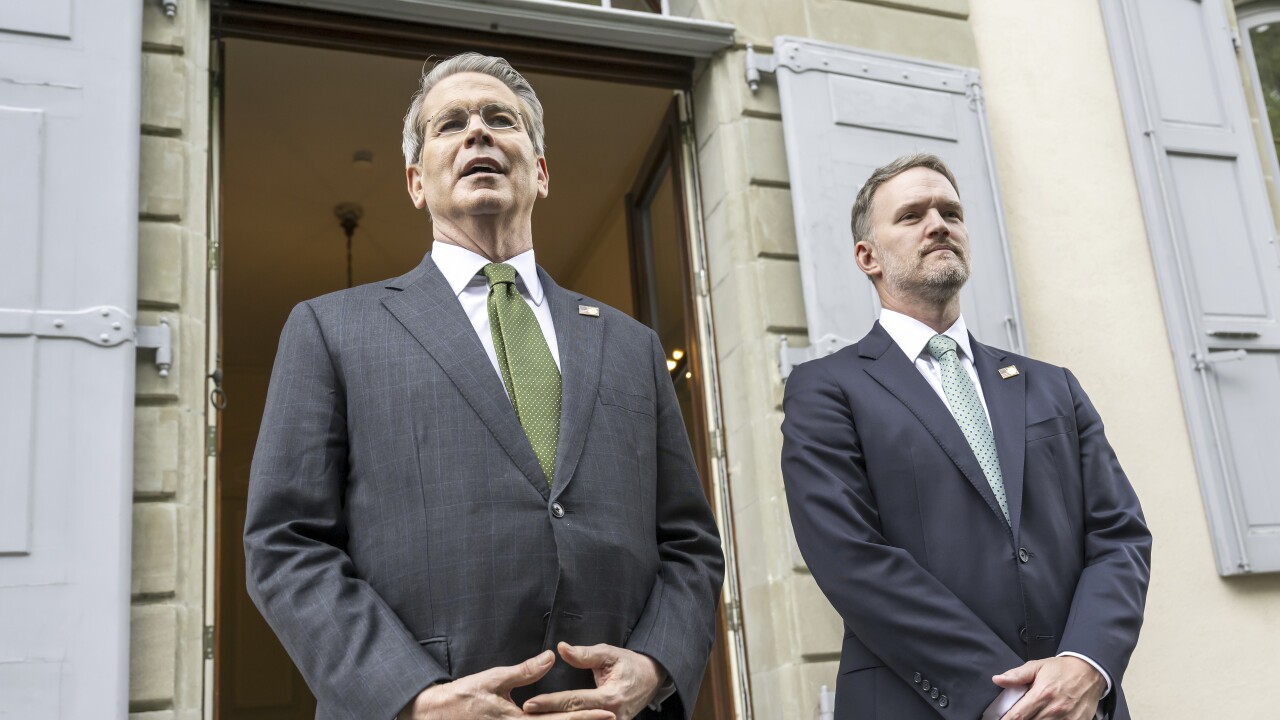Scott Bessent, the U.S. Treasury Secretary, and Chinese Vice Premier He Lifeng Over the weekend, held high-level discussions in Geneva, Switzerland.
This marked the first major dialogue since President Donald Trump imposed steep tariffs on Chinese imports in January.
Following the closed-door talks, Bessent stated that the U.S. and China had made “substantial progress” toward reducing tensions in their ongoing trade conflict.
Although Bessent withheld specifics about the agreements reached, he noted that further details would be announced on Monday.
He also confirmed that President Trump had been briefed on the outcome.
President Trump expressed optimism about the talks, describing them on social media as “very good.”
He also noted that negotiations had been conducted in a “friendly, but constructive, manner.”
Trump called the meetings a “total reset” of the U.S.-China relationship and emphasized the goal of opening Chinese markets to American businesses.
Trump’s enthusiastic post ended with: “GREAT PROGRESS MADE!!!”
The trade war between the two economic giants has escalated significantly since Trump imposed tariffs of up to 145% on Chinese imports.
In retaliation, Beijing introduced its own set of tariffs, reaching 125% on select American products.
Despite this tit-for-tat escalation, Washington clarified through Press Secretary Karoline Leavitt that the U.S. would not ease its tariffs unless China offered its own set of trade concessions.
The White House stressed that the goal was de-escalation rather than striking a comprehensive new trade deal.
Both countries made public warnings prior to the Geneva meetings.
Beijing insisted that the U.S. must reduce tariffs as a condition for progress.
Bessent on the other hand, underscored that the primary objective was lowering tensions rather than concluding a sweeping agreement.
Chinese state-run media reported that China’s decision to participate in the Geneva talks was based on global expectations, domestic interests, and appeals from American businesses affected by the ongoing dispute.
Recent reports have highlighted the negative impact of tariffs on both economies.
For instance, a BBC investigation revealed that some Chinese exporters, like Sorbo Technology, were suffering due to diminished access to the American market.
Sorbo stated that half its production, normally destined for U.S. consumers, was sitting unsold in warehouses.
Similarly, the U.S. economy contracted at an annual rate of 0.3% in the first quarter, as businesses scrambled to import goods ahead of rising tariffs.
Tensions reached a new peak last month when President Trump announced sweeping new tariffs under the banner of “Liberation Day,” applying a baseline rate to all imports.
He targeted approximately 60 trading partners, labeling them the “worst offenders,” with China and the European Union at the top of the list.
Trump framed these measures as a response to what he viewed as decades of unfair treatment of the U.S. in global trade.
Alongside these blanket tariffs, Trump also imposed a 25% duty on all steel and aluminum imports and introduced an additional 25% tax on all cars and car parts entering the country.
However, some exceptions were made.
In a separate agreement last week, the U.S. and the U.K. finalized a deal allowing up to 100,000 British cars to enter the U.S. annually at a reduced tariff rate of 10%, down from the initial 25%.
This concession aligns with the volume of vehicles the U.K. exported to the U.S. in the previous year.
With car exports valued at roughly £9 billion in 2024, the automotive sector is one of the U.K.’s most vital trade assets in its relationship with the U.S.
In summary, while no concrete trade deal has been finalized, recent high-level talks in Geneva suggest that both the U.S. and China are moving toward de-escalation.
Ongoing negotiations are likely to continue, as both nations weigh their strategic and economic interests against the backdrop of rising global pressure and domestic challenges.







